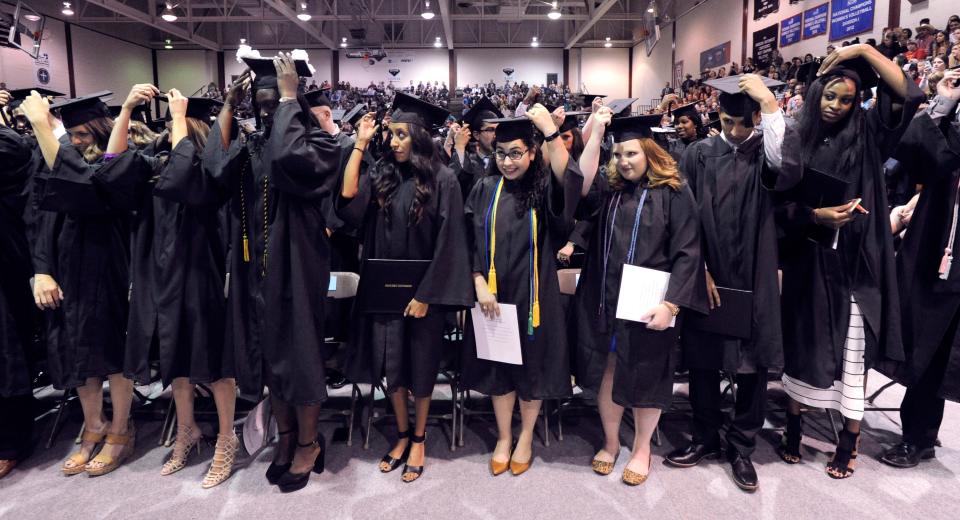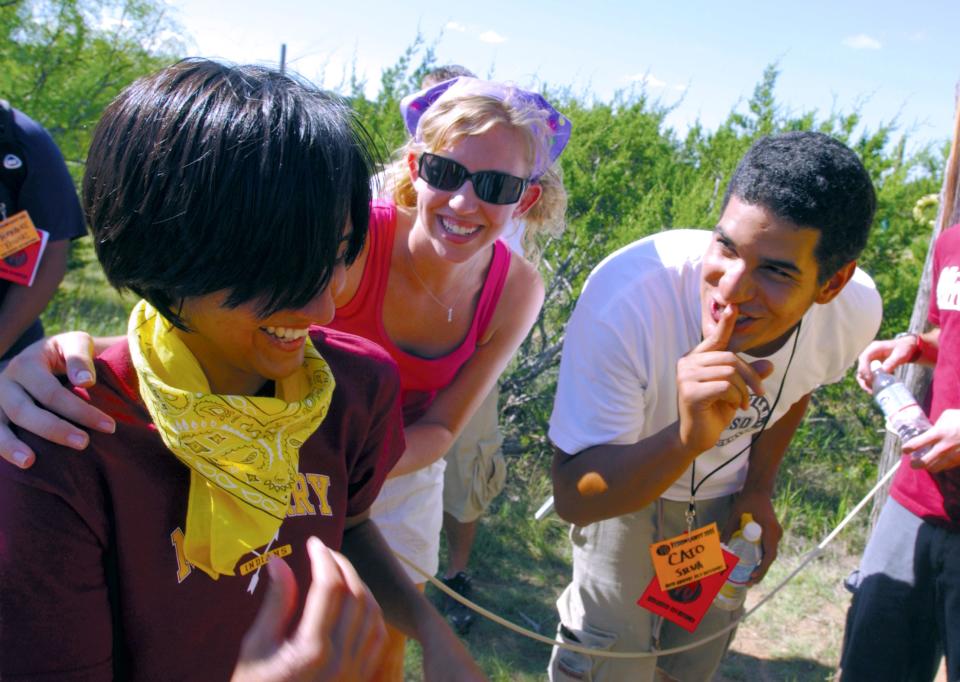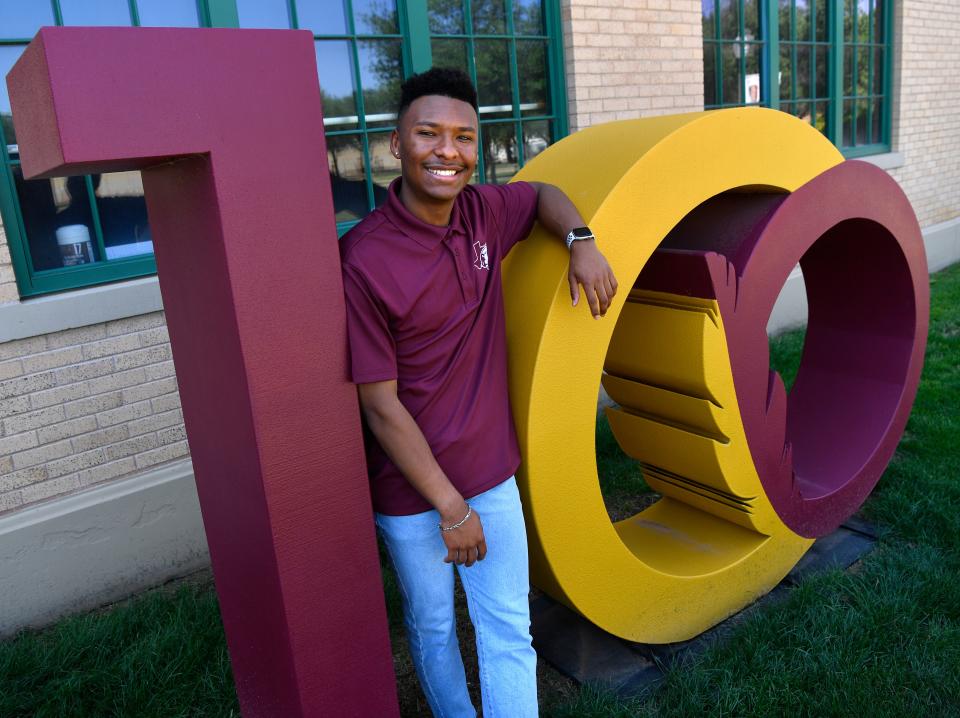McMurry has gained Hispanic serving status, cut student expenses
- Oops!Something went wrong.Please try again later.
The U.S. Supreme Court decision to strike affirmative action set off the expected chorus of reaction - support and protest.
And some confusion.
The focus was on colleges.
The court in a 6-3 vote struck down the affirmative action program at the University of North Carolina and in a 6-2 vote, at Harvard. In summary, considering race in the admission process is a violation of the Equal Protection Clause of the U.S. Constitution, the court ruled. Thus, affirmative action programs are unlawful.
Wrote Chief Justice John Roberts for the majority, "The student must be treated based on his or her experiences as an individual, not on the basis of race."
The decisions reversed a ruling 20 years ago that said race could be considered a factor in admissions, to get past discrimination.
More: No quotas: Abilene universities have still become more diverse
More: Hardin-Simmons acceptance rate is up; goal now is student success
First, what is affirmative action?
Encyclopedia Britannica defines affirmative action in the United States as "the active effort to improve employment, educational and other opportunities for members of groups that have been subjected to discrimination. Criteria for affirmative action include race, disability, gender identity, sexual orientation, ethnic origin and age."
Those cheering the ruling say it will make considerations more "colorblind." It was a word Justice Clarence Thomas used in his opinion.
Opponents say its a big step backward in fixing discrimination. Justice Sonia Sotomayor, said the ruling "stands in the way and rolls back decades of precedent and momentous progress."
In Abilene, home of three private four-year colleges, the ruling has little if any effect. Abilene Christian, Hardin-Simmons and McMurry have not used race consideration to enroll students, representatives at each institution say.
"The ruling does not affect us in any way," said Anthony Williams, who heads the office of Diversity, Equity and Inclusion at ACU. He doesn't believe it affects the other two colleges, either.
He offered that local campus demographics are changing anyway, and the result of intentional efforts over the years.
"We want to provide an opportunity that doors are open to all," Williams said.
Colleges are focusing on better ensuring that the collegiate experience is meaningful, and encouraging a student to stick with it through graduation. That includes making sure that a minority student feels welcome, is plugged in and is comfortable on campus, as well as helping with financial and emotions needs that many students face.
College costs a lot of money, even with scholarships. While Abilene college representatives believe a college education will make a difference in future employment, they also realize that debt may negate that aspiration. The cost could force a student to drop out or spend years getting out of debt.
All believe the student experience at their respective campus has improved greatly. ACU, HSU and McMurry were historically white campuses until Black students were accepted 60 or so years ago. Today's demographics reflect change.
Hardin-Simmons, in fact, showed its student population largely mirrored that of Abilene at roughly 55% white, 25% Hispanic and 10% Black.
White students at McMurry are a minority (44%) when Hispanic (34%) and Black students (17%) are combined.
ACU's main campus is 64% white, 18% Hispanic and 7% Black. Including its Dallas campus, ACU is 59% white, 21% Hispanic and 7% Black.
Abilene Christian over 10 years has shown a 196% increase in students of color, Williams noted.
All three also note that religious affiliations have changed.
ACU now is 29% Church of Christ
Hardin-Simmons now is 34% Baptist
McMurry now is 6% Methodist.
The Reporter-News talked to representatives of each university - Williams at ACU, Travis Seekins at HSU and Matt Draud at McMurry. Here is how they assess diversity efforts at their schools.
McMurry: Focus on Hispanic students, cutting expenses

McMurry's approach to a diverse student body is simple and not unusual.
"We use a holistic admissions process, like many universities do," said Matt Draud, McMurry's vice president for academic affairs. "We try to look at students based on their educational backgrounds - how they did in high school. But we also ask them to reflect on their own experiences leading up to admission to college.
"Why do they want to go to college? How they think they'll fit in at a university like McMurry."
McMurry hasn't relied on quotas, Daud said. Most students who apply to McMurry are accepted.
"The small fraction who are not admitted don't fit the academic profile we are looking for," he said.
There's no way to compare McMurry to, say, Harvard, he said. Harvard admits about 1,500 freshmen each year and gets 60,000 or so applicants. That has to be whittled, which is tough because "almost all of them are qualified" to attend the university, he said.
Draud believes Harvard will find a way to achieve diversity and meet its own expectations.
Some challengers to the court ruling say institutions such as Harvard give too many places to "legacies" - students whose families have a past with the university. Those most often are white families, which further limits the number of open places for students, it's argued.
Draud said McMurry has a legacy stream, be it family that has attended or knowing someone who attended and recommends McMurry.
But with McMurry accepting most students, a legacy would not knock out another student.
Draud said McMurry wants to be known as a "university of opportunity."

The university's brand also doesn't carry as far nationally as, again, Harvard.
"One of our best branding strategies is good word of mouth," Draud said.
That now includes knowing McMurry is a Hispanic Serving Institution. At 34%, McMurry is well above the standard (25%) to qualify.
An HSI qualifies the college for grants. Those are competitive, not automatic, Daud said. McMurry currently has two Title V grants - federal funds to assist Hispanics in higher education pursuits.
McMurry uses those funds to expand academic programs and support. Funds don't have to directly affect Hispanic students; they would benefit from strengthening the university overall, Draud said.
That includes programs for all first-generation students, who could represent a variety of ethnicities. Those students may not have strong socio-economic backgrounds - a challenge in itself.
"We try to be proactive and look at that ahead of time. 'How much support are they going need to be successful?' he said.

More: McMurry grad delivers on academic promise to mom
Incoming students are graded on risk; McMurry then can determine how to serve them from the start, Daud said.
That led two years ago to the creation of War Hawks Success Center, which assigns a success coach to every new student or transfer. The person stays with him or her through college, a "trusted person" that the student "can go to with any question. That person manages their care," Draud said.
This benefits all students but particularly those who may face financial, emotional, housing and other issues. Students have to know help is there, and then how to access it.
"We're beginning to see a lot of success with it," Draud said of the program.
McMurry a few years back instituted a quality enhancement plan to focus on student retention. Mindset for Success was created, a precursor to the War Hawks Success Center. Draud said that program was more reactive to students' needs; the new strategy is to ID needs at the start, thus be proactive.
McMurry doesn't have a diversity, equity and inclusion office but Larry Dockery, who currently is interim athletic director, has headed a program to ensure diversity and support in sports. Dockery is Black.
The university, too, has created programs that it hopes unifies students. Particularly those who commute.
There also is a diversity council headed by President Sandra Harper. Representatives from different areas of campus, such as athletics and student affairs, meet to discuss how diversity can be furthered among students, faculty and staff.

One new idea that has come forward from that group has been to include books in tuition. That reduces the immediate need to separately purchase books after semester financial arrangements have been made. Draud said only about 30% of students purchase books; others may get a book on a free trial, and often, the agreement runs out before the semester ends, leaving them textbook-less nearing finals.
"I think (the books plan) evens the playing field across the board," Draud said.
McMurry also provides each student with a laptop. The laptops are selected to accommodates specific fields of study so all students begin at the same starting line. This also reduces technology glitches; if there is one, it affects all students.
A goal, shared by many universities, is diversity in faculty.
"We don't have as many Black or Hispanic faculty as we'd like to have," Draud said. Smaller, regional institutions are less likely to attract those candidates, he said. A faculty member has to want to live in Abilene.
But on the upside, McMurry faculty currently represents a number of nations. Thus, students see global diversity in the front of them.
"We're doing everything we can to attract those strong candidates," Draud said.
This article originally appeared on Abilene Reporter-News: McMurry has gained Hispanic serving status, cut student expenses

